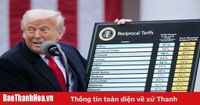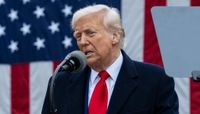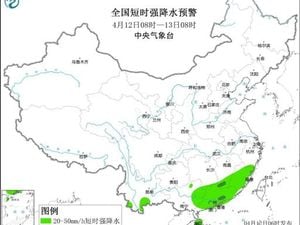A movement to boycott American goods has emerged following President Donald Trump's announcement of comprehensive tariffs on countries worldwide. The president's new tariff regime includes a 10% general tariff on all imports from various nations, alongside higher tariffs on dozens of other countries. This announcement has sparked a significant online reaction, with the term "BoycottUSA" quickly trending on social media platform X, as well as a surge in Google searches related to the topic.
According to Google search data, people in countries such as Canada, the United Kingdom, France, Germany, Italy, Switzerland, Sweden, Denmark, Belgium, India, Australia, and New Zealand are actively searching for "Boycott USA". Queries have included specific searches for terms like "American products to boycott", "list of American products to boycott", and "how to boycott American products". This indicates a growing sentiment against American goods and brands following the tariff announcement.
On April 2, 2025, Trump declared this day as "Liberation Day" during an event at the White House, where he unveiled the new tariffs. The White House hopes that these measures will help reduce last year's staggering trade deficit of $1.2 trillion. However, experts have warned that such tariffs could backfire, potentially harming the American economy as the costs will likely be passed down to businesses and consumers.
In the immediate aftermath of the announcement, the Wall Street stock market experienced a sharp decline on April 3, 2025, which contributed to a downturn in global markets. The implications of these tariffs have drawn criticism and concern from various world leaders. European Commission President Ursula von der Leyen described Trump's policy as a "strong blow to the global economy," emphasizing the potential for widespread repercussions.
Japanese Prime Minister Shigeru Ishiba also weighed in, stating that the US government's trade restrictions could adversely affect not only the economic relationship between Japan and the US but also the broader global economy and multilateral trading system. In response to the tariffs, Canadian Prime Minister Mark Carney announced that his government would implement countermeasures. Meanwhile, British Prime Minister Keir Starmer highlighted the futility of trade wars, asserting, "No one wins in a trade war."
Many individuals have taken to social media to express their dissent. Canadian author Jeffrey Luscombe announced on X that he canceled a planned trip to Florida, opting instead to remain in Canada. Another user declared their intention to never visit the US again and vowed to boycott American products and companies whenever possible. This growing wave of discontent is reflected in a report from the research firm Tourism Economics, which predicts a 5.5% decrease in tourism to the US in 2025.
This is not the first instance of the "Boycott USA" movement gaining traction. In March 2025, searches surged in the European Union and Canada after the US imposed tariffs on goods from Canada, Mexico, and China. The recent tariff announcements have reignited this movement, prompting renewed calls for boycotts and further discussions about the implications of Trump's trade policies.
According to the tariff plan announced by the US, a 25% tariff on all cars manufactured abroad took effect on April 3, 2025. The "basic" 10% tariff is set to take effect on April 5, 2025, followed by a reciprocal tariff that will begin on April 9, 2025. These new tariffs are part of a broader strategy by the Trump administration to reshape international trade relationships and address perceived imbalances.
As the situation continues to develop, it remains to be seen how these tariffs will impact American brands and products abroad, as well as the overall global economy. The backlash against American goods is tangible, with many consumers actively seeking alternatives and expressing their dissatisfaction online.
In summary, the announcement of new tariffs by President Trump has not only sparked a trending movement to boycott American products but has also raised concerns among global leaders and economists about the potential fallout from such aggressive trade policies. As the world watches closely, the implications of these tariffs will likely unfold in the coming months, affecting both American consumers and international trade dynamics.





